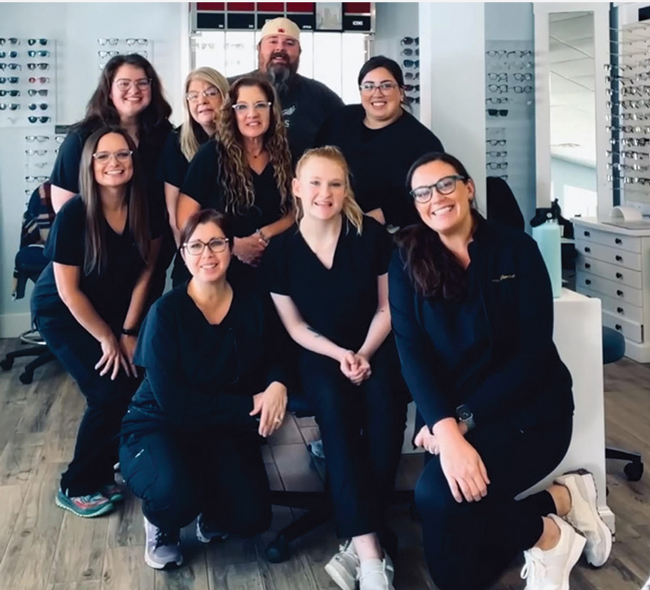North Carolina Practice Believes in the Power of AI
| 
|
| Haley Perry, OD
| | |
|
Haley Perry, OD, is a big believer in the power of artificial intelligence (AI). The owner of Elite Eye Care, a Vision Source practice located in Arden, N.C., said the office “has leveraged AI to streamline our operations and improve efficiency across various roles.” From the front desk to the marketing department to transcribing patient notes, AI is playing a pivotal role throughout the entire practice.
Dr. Perry said, “Our front desk staff uses ChatGPT to assist non-English speaking patients and clarify complex insurance benefits. Our opticians and managers optimize stock levels and manage inventory more effectively by analyzing sales data and patient demographics with AI tools. For financial benefits, our billing staff uses AI to handle claim denials and guide the refiling process, reducing overhead costs.
“Our practice managers and marketing employees harness AI to identify sales trends and create targeted marketing campaigns, boosting our revenue. We also focus on team building by using AI to develop role-playing scenarios for sales training, enhancing our team’s skills and cohesiveness. I use AI to transcribe my patient conversations into SOAP notes, significantly reducing charting time,” she said.

|
| AI has allowed the staff at Elite Eye Care to take on new initiatives and improve the practice. “We are doing more faster because we can,”
Dr. Perry said.
|
|
|
|
The capabilities of ChatGPT extend far beyond developing emails and marketing campaigns, and Dr. Perry said the practice is using ChatGPT to its fullest capacity. The practice also uses Scribe to create office protocols, Recast to convert articles into podcast episodes for easy listening, and tools like Syllaby and Visla to create marketing videos. These applications enhance various aspects of the practice, from protocol development to marketing and education, Dr. Perry said.
Apparently, the benefits of using AI are paying off for Elite Eye Care. “I have seen a substantial boost in productivity. AI allows me to spend less time on routine tasks such as charting and data analysis, giving me more time to focus on higher-value activities. For example, I now have more efficient scheduling and goal-setting processes, thanks to AI’s ability to analyze data and suggest improvements.
“AI has made our processes and procedures significantly more efficient. It streamlines routine tasks, improves data accuracy, and allows for better resource allocation, ultimately enhancing our overall productivity,” Dr. Perry said.
Understandably, when the technology was first introduced the staff’s reaction to using AI was mixed. Initially, there was some hesitation and there was a learning curve. Dr. Perry said, “As our team recognized the potential of AI, they embraced it more enthusiastically. I created a course to help them understand and utilize AI effectively. While it requires imagination and expertise to ask the right questions, our team has become proficient in leveraging AI to enhance their workflows.
“In general, I haven’t encountered significant downsides. Increased productivity can sometimes lead to a sense of needing to find more tasks to fill the time. However, this has allowed us to take on new initiatives and improve our practice further. We are doing more faster because we can,” Dr. Perry noted.
In short, AI has become “a go-to resource for finding the best possible answers and solutions when I’m not available,” Dr. Perry noted.
The practice also leverages AI in its marketing materials. The team uses ChatGPT to tailor marketing strategies based on patient demographics, create targeted social media posts, identify keywords for blog posts and social media posts, design and analyze feedback surveys, and craft personalized educational content. “This allows us to engage more effectively with our patients and optimize our marketing efforts for better results,” Dr. Perry said.
In the next six to 12 months, Elite Eye Care plans to use AI for goal-setting and measurement, data analysis, and problem anticipation. “I hope that electronic medical records will integrate AI to automate documentation and improve patient triage with automatic scheduling. This will enhance our ability to provide timely and appropriate care,” Dr. Perry concluded.
|